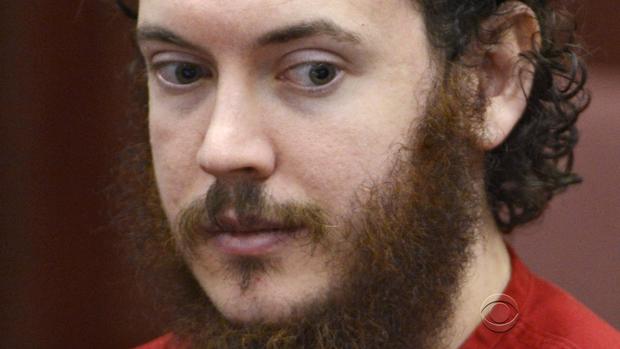Colorado shooter wanted to be "successful at the mission"
CENTENNIAL, Colo. -- Today, the jury in the James Holmes murder trial heard more from the defendant -- in his videotaped interview with a court-appointed psychiatrist.
Holmes has pleaded not guilty by reason of insanity in the Colorado movie theater massacre that left 12 people dead and 70 injured.
In the video, he recounts the events of that July night in 2012.
Holmes was matter-of-fact as he described the theater massacre from his point of view to psychiatrist Dr. William Reid.
Reid: You are loading the car, you're getting stuff ready. What's going through your mind?
Holmes: Um, just to get it done.
He faked a phone call to explain going out the exit door.
Outside in his car, he calmly armed himself and suited up in body armor. Then he went back in to begin his murderous and methodical killing.
Reid: Heart pumping, adrenaline racing?
Holmes: No.
Reid: Calm?
Holmes: Um, calm and collected.
Reid: Calm and collected.
He emptied his six-round shotgun, then started firing his assault rifle.
Holmes: I heard a scream.
Reid: Did you see anyone fall from being hit
Holmes: No
Reid: Really?
Holmes: They got down kind of behind the seats pretty fast
Reid: You didn't see anyone actually hit by bullets or shells or shot?
Holmes: I saw the one wounded guy they carried out.
The psychiatrist asked Holmes to imagine what it was like for the people in the theater...his targets.
Reid: What do people feel when they are experience that?
Holmes: Terror, I would say
He called what he did a mission. How did he want to be remembered?
Holmes: As mentally ill, different from the norm
Reid: How else
Holmes: Being successful at the mission
He was asked about the death penalty and said originally he wasn't going to oppose it. But then in the videotape, with families and victims listening in the courtroom, he said he will now fight it, because his death, as he put it will make his family sad.
